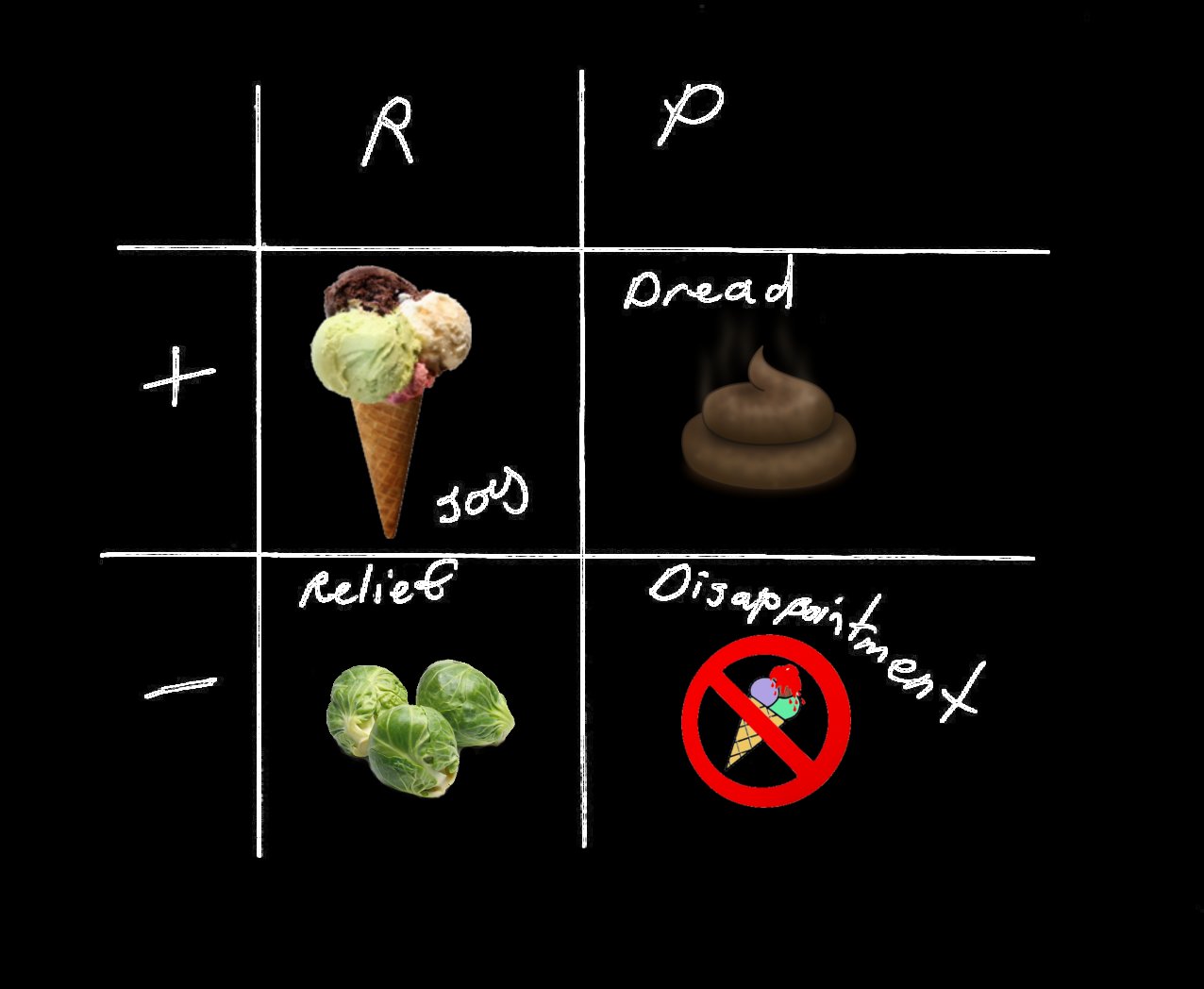Consequences come in 4 flavours
As I’ve mentioned before, what happens just after you’ve performed an action is what adds or deletes that behaviour from your repertoire. Behavioural scientists have divided the possible consequences into four flavours. They’re helpful because if you can identify and change the type of consequences that are acting on a particular behaviour, you have the leverage you need to change how likely it is to happen.
The four flavours are:
- Your all-time favourite: Joy (+R)
You eagerly anticipate having some, and enjoy every bite. Even thinking of it gives you a happy glow. - Discontinued and out of stock: Disappointment (-P)
It was your favourite flavour, but now it is suddenly and inexplicably gone. You feed a great sense of loss and sadness thinking of what you’re missing out on. - Least favourite vegetable: Relief (-R)
A serving of green stuff you don’t like to eat, sitting there glaring at you. It won’t go away until you eat it , so get it over and done with. You feel better once the last bite is gone and you no longer have to suffer through it. - Dog doo: Dread (+P)
Nobody wants this stuff under their nose, or to have it shoved down their throat. There’s a mistaken belief that this flavour of consequence is the most effective. You feel extremely uncomfortable and want to avoid it at all costs.
The scientific jargon is based on two elements:
- either the consequence makes the target behaviour more or less likely (they name these Reinforcement and Punishment, respectively)
- either the consequence involves adding something or taking something away (just like maths, plus and minus).
You don’t need a detailed understanding of the jargon, but it is handy as short-hand when discussing different flavours of consequence.
Each flavour causes an emotional response, which is why they motivate us and create changes in the way we behave. Obviously, they work very differently. Some support our overall performance while others can create problems. Our biochemistry has a lot to do with that. More on that later!
Do you have an experience of the “dog doo flavour†type consequence happening at work? Surely you’ve heard the term “ when the shit hits the fanâ€. 🙂 What was the behaviour that lead to that nasty consequence, and what happened to that behaviour: did you do that again?? What else changed?

